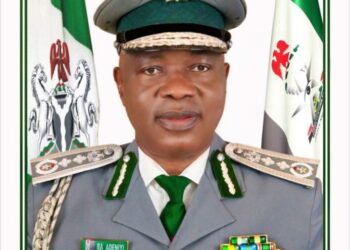Even though it was to have come simultaneously with the port concession deal of 2006, it has nevertheless taken as much as how old the concession has been and yet, there seem to be no hope that it would be passed during the current session of the National Assembly. We all had hoped that it would be passed since the concession was flagged off in 2006, we were hopeful, even up to the last weeks of the sixth session, but we were shocked that the session ended without the all-important bill being attended to.
Even though it was to have come simultaneously with the port concession deal of 2006, it has nevertheless taken as much as how old the concession has been and yet, there seem to be no hope that it would be passed during the current session of the National Assembly. We all had hoped that it would be passed since the concession was flagged off in 2006, we were hopeful, even up to the last weeks of the sixth session, but we were shocked that the session ended without the all-important bill being attended to.
Sometime last year, the minister of transport, Senator Idris Umar convened an inter-ministerial retreat, purposely for harmonization of all transport sector bills, that is, the Port and Harbour bill and the National Transport Commission (NTC) bill.
We were told then, that the retreat enjoys the support of President Goodluck Jonathan who has reportedly given a December, 2011 deadline for all pending bills to be brought before the Federal Executive Council (FEC). The NTC Bill is an executive bill.
From all indications (even though no one is willing to admit), what is probably the stumbling block on the way to the passage of the Ports and Harbour bill is the conflict of interest between its proponents and those who have been pushing for the National Transport Commission (NTC).
There are even stronger indications that, after everyone had thought that it had conceded to the National Assembly over the Ports and Harbour Bill, the Bureau of Public Enterprises (BPE) may have succeeded in convincing the ministry of transport to take another step backwards in the quest to ensure that the nation’s port system is governed by a set of commercial and technical regulations ‘midwived’ by the BPE.
Unfolding events since the 2011 ministerial retreat, tend to give credence to insinuations that the main rationale for the retreat was to ‘shoot –down’ the Ports and Harbour bill, this is essentially so because the BPE has never hidden its opposition to the port bill, at least, in preference for the National Transport Commission bill, which it is promoting.
We are surprised that since the celebrated retreat, there has been no mention of the bill, either by the National Assembly or the executive.
Every promise that were given by the sixth assembly that the bill would be passed were not kept.
Earlier in the year, the Chairman of House of Representatives committee marine transport, Hon. Ifeanyi Ugwuanyi.
He was quoted as telling journalists in Onitsha that: “We are re-introducing the Ports and Harbour bill, because we discovered that it will erode the Nigerian Ports Authority of its powers. I want to take it back to stakeholders and agree on what to do with it”.
We recollect that after what appear like a stalemate after the public hearing which it conducted in 2009, the committee held an all-night meeting with a select group of stakeholders in Abuja. At that meeting, the final details and consensus about the bill were supposedly arrived at, but surprisingly, the lawmakers subjected the bill to further rounds of debate between them and the Nigerian Ports Authourity (NPA). This led to another delay and it is obviously the disagreements from the meeting with NPA that led to the delay in passing the bill.
It appears to us that the National Assembly is deliberately putting obstacles on the way of this bill, otherwise, it should not have difficulties in passing it after the public hearing and the stakeholders’ meeting where it was even agreed that the proposed Port and Harbour Bill should also create an Independent Port Regulatory Commission that will act as the arbiter in cases of disputes between all players in the post-concessioned port system.
We heard that the House had difficulties with the request for financial autonomy that was reportedly requested for by the NPA. Why should the House be bogged down by that desire (if it is true) of the NPA, especially after it had met with stakeholders at the public hearing and at other fora.
As much as we do not agree that NPA should be made to pay all its revenues into the federation account because of the nature of port business that require urgency and timeliness, we are of a very strong opinion that there is more to the Ports and Harbour bill than the deadlock over how NPA’s earnings should be spent.
The current members of the committee in the two chambers have no choice than to deliver on that bill. It is time wasting and deceptive to expect any input from the executive, all in the name of the controversial NTC.
It is very surprising that whereas the House of Representatives has done a lot by at least holding a public hearing and subjecting it to various levels of legislative process, the Senate has consistently acted as if the Port and Harbour bill is only for the attention of the lower chamber.
















Discussion about this post